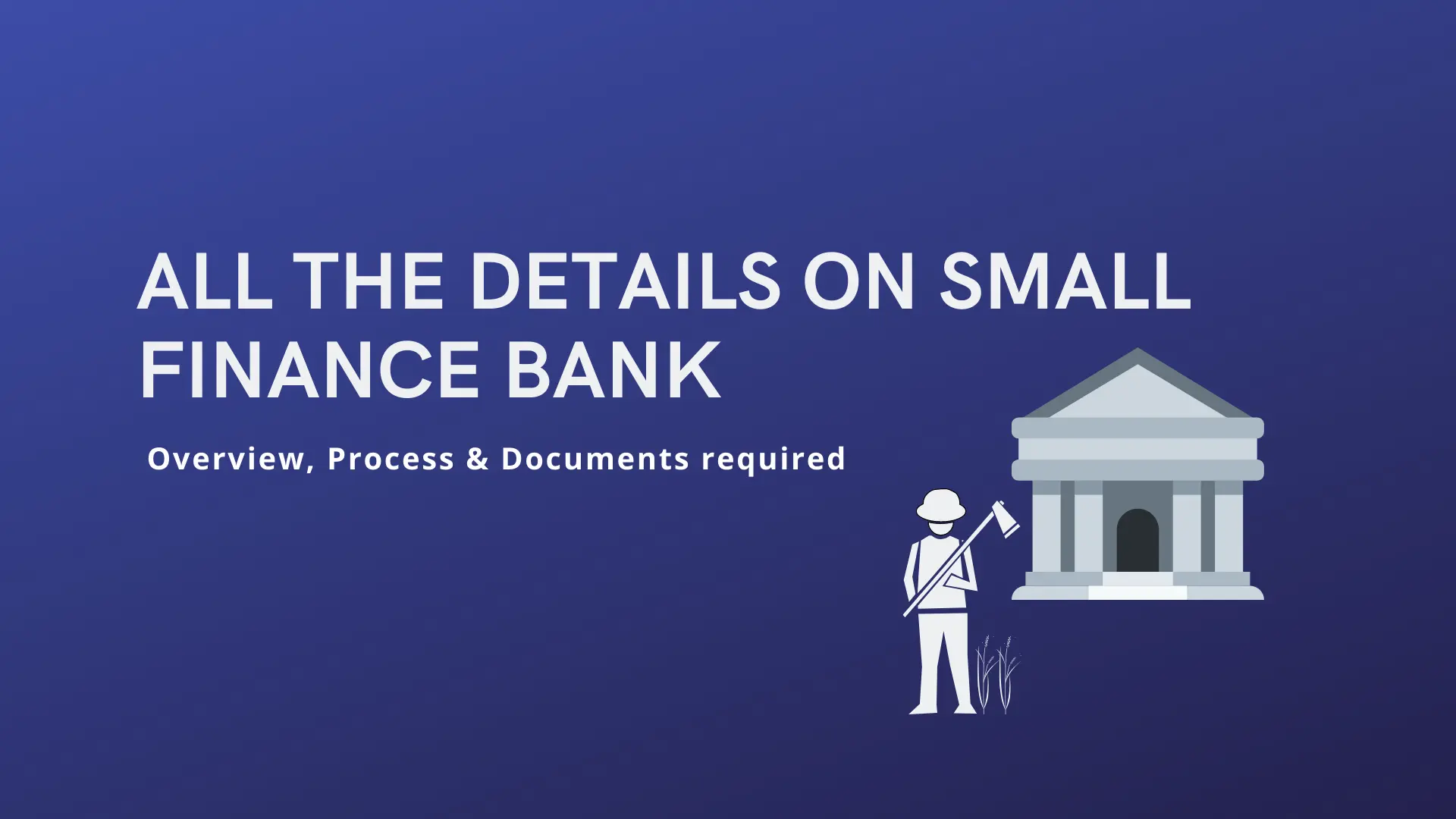

Top 20 Cryptocurrencies You Should Invest in 2020 (The Complete Guide)
Invest in cryptocurrencies that have a similar risk factor as any other market-linked commodity such as stocks or equity, but they can give much better returns than anything you’ll ever get with traditional markets.
Among other commodities, cryptocurrency will continue to be in the buzz for investment this year. And why not? If we pick the returns graph of the last 10 years, cryptocurrencies have been among the highest yielding investment products.
So, if you are planning to invest in cryptocurrencies this year, some obvious questions may be bothering you, like:
Which new cryptocurrencies should I invest in?
Will bitcoin still be profitable in 2020?
Should I increase my stake in ETH?
If you are wondering the same things, you’re at the right place. In this article, we will talk about the top digital currencies that are worth looking into for investment this year and beyond.
Why invest in cryptocurrencies, and not just put all your money in stocks?
On the other hand, if you are wondering why you shouldn’t just put all your money in stocks or mutual funds rather than investing in cryptos, I have one answer for you - High returns.
For most of us, the primary reason to invest in something is high returns. We all want to invest in commodities that can give us huge returns, preferably in two digits, but at the same time, we do not want to take high risk.
So, I say invest in cryptocurrencies that have a similar risk factor as any other market-linked commodity such as stocks or equity, but they can give much better returns than anything you’ll ever get with traditional markets.
For instance, the value of bitcoin increased by more than 10 times (1000% return) between May 2017 ($1,808) and December 2017 ($19,140). Not any other commodity in history has managed to give such huge returns.
Now, I’m not saying that you can expect such big returns from every cryptocurrency or again and again, but most of the good coins still produce returns higher than most other markets. So, it’s usually more beneficial to invest in cryptocurrencies than stocks or other assets.
And of course, there is the underlying technology - blockchain - that seems to have great potential and usability in digital payments, data storage and various other industries.
Now, let’s get back to our original topics. Here are the
Top 20 Cryptocurrencies to invest in 2020
#1 Bitcoin (BTC)

Bitcoin continues to remain the number one choice for both the existing and new investors in the crypto space. The previous few stints (2017, 2019, etc.) have done much good for the value and popularity of the cryptocurrency. Many investors are even hopeful that the Bitcoin price may touch a new record-high this year.
One thing that, however, may slightly impact the ever-rising popularity of bitcoin is the upcoming halving in May 2020 when the miner rewards for Bitcoin will be reduced to half, 6.25 BTC from the current 12.5 BTC per new block. However, it is still being expected that the currency will continue to dominate the market with a 65-70% share in 2020.
#2 ETH

ETH, which is the native cryptocurrency of the Ethereum blockchain network, is probably the only digital coin that has managed to come close to the popularity and reputation of Bitcoin.
It’s an altcoin that utilizes practical smart contracts designed in such a manner that they can be used in a variety of real-world applications for performing transactions in a highly secure, decentralized and peer-to-peer fashion. Unlike Bitcoin, the value and demand of the ETH are mostly fueled by its usability and the high demand for its blockchain and applications that can be easily customized to build other decentralized applications, currencies and smart contracts.
#3 Ripple (XRP)

Ripple is an all-time favourite cryptocurrency of many investors like me. Reason? Besides bitcoin, Ripple is probably the most used coin for cross-border payments by many leading financial institutions, including banks, around the world.
Besides acting as the primary currency for performing transactions within the Ripple Ecosystem, the Ripple coin can also be used for performing easy and affordable global financial transactions. The Ripple network offers a range of popular products such as RippleNET, xCurrent, and xRapid that are being used by institutions worldwide for finding and connecting with customers and service providers.
#4 DASH
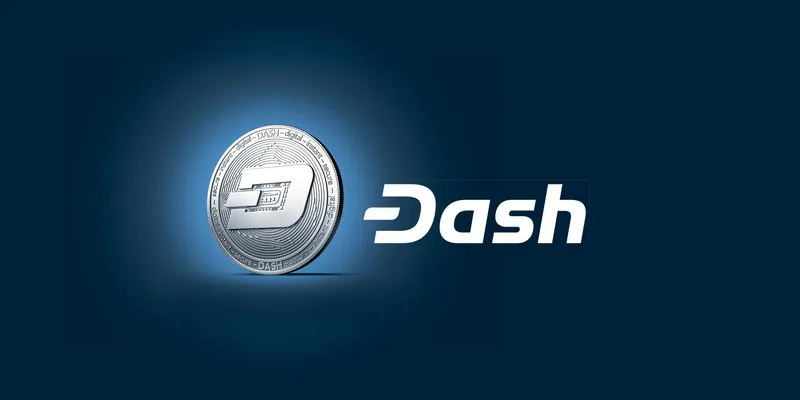
Dash is another digital currency that was created on the concept of secure, peer-to-peer digital payments. Among other things that make Dash a popular coin is the ability to process payments almost instantly, in real-time, which enables individuals and organizations around the world to perform safe and instant cross-border transactions using Dash.
DASH is also popular because it charges a very low fee from the transacting parties, and the payments are highly reliable.
The recent advice from the World Health Organization (WHO) to adopt digital money over paper cash to avoid viruses like COVID 19 is expected to result in a big boost in the demand and value of Dash and many other digital currencies out there.
#5 NEO

NEO is the first open-source cryptocurrency originated in China. It is also sometimes called the Chinese version of Bitcoin, as it seems to work more or less like Bitcoin, which is officially illegal in China.
However, in reality, NEO is quite different from BTC. For one, it is open-source and run by a community of NEO users, investors and developers. NEO features a cross-platform, multi-language supported smart contract system built on blockchain technology for easy and efficient management of digital assets in a decentralized environment.
The primary focus of the NEO network is on creating an ecosystem where real assets can be digitized for easy liquidity and to boost the mass adoption of blockchain.
#6 TRON (TRX)
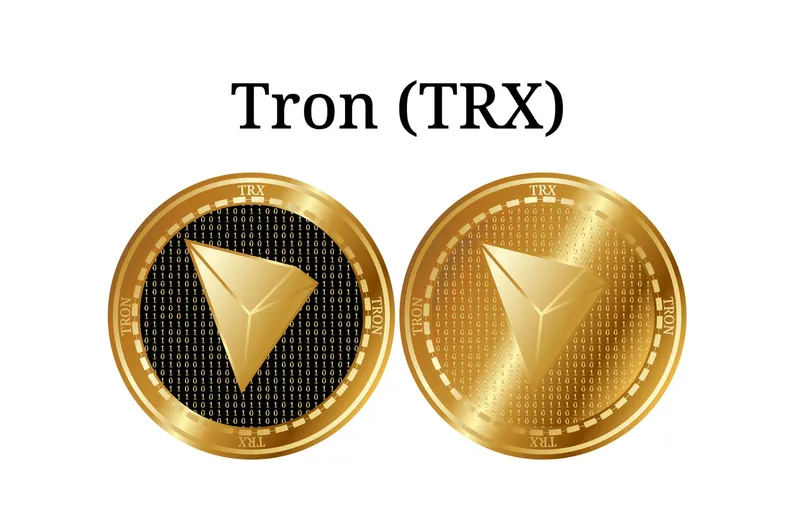
If you are a supporter of the decentralized economy and prefer a system where monetary transactions are no longer governed by centralized entities such as banks or the government, you should certainly check out the Tron project.
TRON is a blockchain-based operating system that allows developers to build futuristic decentralized applications, smart contracts, etc. on the blockchain. It aims to develop an ecosystem or a kind of new internet which is completely run by blockchain. It also doubles as a global, decentralized content management system based on blockchain technology.
The coin value has grown by nearly 400% percent since its launch in 2017.
#7 TTN
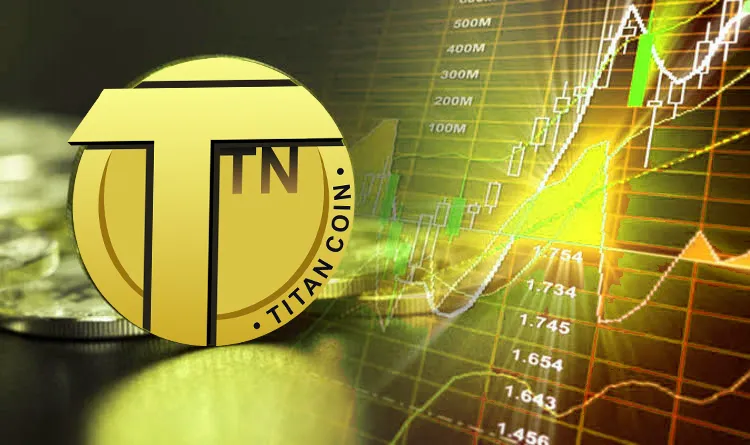
Titan coin, or TTN, is one of the newer coins that not many people know about, but they deserve appreciation for the innovative use of blockchain technology.
At the outset, Titan coin is like any other digital currency that can be used for making easy, fast and secure cross-border payments. You can use it at any merchant or website that accepts the coin. It uses hybrid consensus (PoS/PoW) for added security and efficiency in the blockchain.
But, the thing that makes the Titan coin truly unique and different from most other cryptocurrencies is the presence of actual use cases. The Titan project has been essentially launched as an ecosystem that comprises a range of highly usable projects or mobile apps that could make day-to-day tasks easier for the masses. All the apps in the ecosystem use Titan coin as a means for secure, in-app payments, thus creating an obvious demand and boosting the coin value in the market.
#8 Litecoin (LTC)

Litecoin is a peer-to-peer digital currency based on blockchain. It works more or less like bitcoin but is less resource-intensive. In other words, the maintenance of a Litecoin network is relatively easier and cheaper. It uses blockchain technology for the creation and transfer of digital coins.
Litecoin is one of the first altcoins (bitcoin alternative) and was launched in 2011. The main difference between LTC and BTC is in the type of hashing algorithm they use. The use of the Scrypt PoW algorithm by Litecoin allows users to mine this coin with GPU and other consumer-grade hardware.
At the time of writing this article, the price of LTC was $33.17 USD, about 671% higher than the launch price.
#9 ICON (ICX)

ICON is one of the first projects to work on the concept of blockchain interoperability to allow users on these blockchains to connect and transact with each other. This effectively expands the reach and use cases of cross-chain technology.
ICON runs on a common-purpose blockchain that is based on Proof-of-Stake consensus and can be used for creating & implementing smart contracts and other decentralized applications (DApps). The ICON blockchain is said to be able to process hundreds of transactions per second.
And the idea must have resonated very well with the audiences and investors, as the native coin ICX was ranking at #38 on Coinmarketcap in terms of popularity at the time of writing this article.
#10 Ox (ZRX)

ZRX is a cryptocurrency for the users of the 0x platform, which is a blockchain protocol for allowing the decentralized (peer-to-peer) exchange of token and a range of digital assets on the Ethereum blockchain. ZRX holders can also vest their tokens by staking with 0x market makers and earn liquidity rewards in exchange.
ZRX has produced an ROI of over 37% since its foundation in 2017 and is one of the highest-rated tokens based on market cap.
#11 Kyber Network (KNC)

Ranked at 54th position globally in terms of market cap, KNC (Kyber Network Crystal) is a native cryptocurrency of the Kyber Liquidity Network. It’s an ERC-20 token and essentially gives holders access to an on-chain liquidity protocol for an easy, fast and secure exchange of tokens in any decentralized application. The facility can be used by individuals and merchants for integrating instant token swaps into their own systems.
The Kyber Network also allows developers to build decentralized applications like financial smart contracts and other DApps on its platform.
#12 Status (SNT)

Status is a kind of social networking and instant messaging platform that allows users to interact in a completely private manner with the use of a peer-to-peer protocol and state of the art encryption. It also integrates a crypto wallet and a Web3 browser. It was started as an open-source project and is now managed by designers, developers and crypto enthusiasts from all over the world.
The Status Network Token (SNT) is a utility token that enables and rewards users to participate on the Status Network. It’s an ERC-20 token that gives unprecedented access to all the existing apps and features of the platform.
#13 Horizen (ZEN)

Horizen is an incentive-focused ecosystem that aims to empower people and businesses with advanced capabilities on the blockchain. The platform cryptocurrency - ZEN - gives access to the decentralized ecosystem along with all its DApps, products & services. It aims to enable more and more people and enterprises to adopt blockchain technology and solutions through real-world utilities/ use cases. It comes integrated with an open-source software development kit (SDK) for the development & deployment of sidechains (customized blockchains) and also allows the integration of third-party technologies.
#14 Ren (REN)

Ren is another crypto project that aims to enable interoperability between blockchains, allowing private and seamless transfer of value-driven data. The main focus of Ren's core product, RenVM, is to introduce interoperability in decentralized finance. Basically, the platform allows you to use any decentralized app or smart contract for connecting and transactions between different blockchains such as BTC, ZEC and BCH. Some other interesting features of the chain include fast transactions, high security, large volume trading and easy integration into existing systems.
#15 Ardor (ARDR)
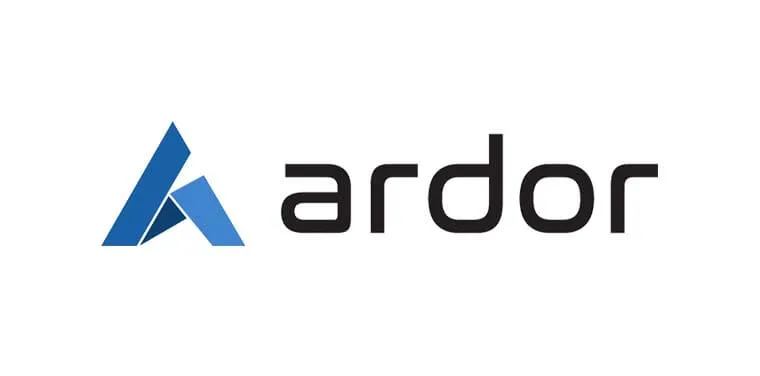
Ardor is a blockchain development platform for businesses and developers looking to create their own customised blockchains without a lot of coding or technical knowledge. The platform offers blockchain as a service (BaaS), where other third-parties can build their child chains based on the parent blockchain of Ardor. It also allows the development of multiple transaction tokens to be used with separate blockchains. Also, it enables users to inter-operate, transact and exchange tokens between various blockchains on the platform.
At the time of writing this article, ARDR was at #92 position in terms of market cap and had a market value of $0.032871 USD per coin.
#16 Yap Stone (YAP)

Launched in 2008, YAP STONE (YAP) is a native currency of an ecosystem based on a shared economy where the profits earned are distributed back to the community. It aims to derive the smart economy by being the primary cryptocurrency used by people in smart cities across the globe.
YAP is a China-based cryptocurrency that’s even though older than Bitcoin but has yet to prove its worth. However, that doesn’t affect its popularity, as the coin ranks at the 99th position in terms of global market cap.
#17 Digitex Futures (DGTX)

With an almost 170% ROI in just a couple of years of its foundation, DGTX is one of the top 100 cryptocurrencies on the CoinMarketcap website.
Digitex Futures is probably the world’s first cryptocurrency futures exchange that doesn’t charge a commission from the traders. It’s a crypto exchange, which means crypto transactions are peer-to-peer and guarantee high profits. DGTX aims to level the crypto trading field by providing the same kinds of opportunities to all types of traders, irrespective of their background and knowledge level. DGTX is the cryptocurrency that gives you access to the zero-fee trading platform of Digitex Futures.
#18 Hyperion (HYN)
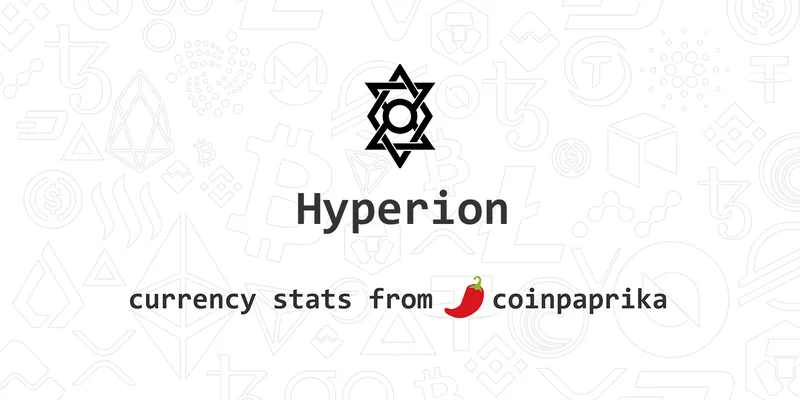
HYN is a cryptocurrency that was created and runs on the Ethereum blockchain. It supports the Hyperion decentralized platform that aims to build a universal map system consisting of global data and services that can be accessed by people worldwide. Basically, it intends to decentralize the way we see and use map services. Hyperion has a number of products under its umbrella, including a privacy-focused map application, TITAN, and a decentralized PaaS for Maps/LBS, MAP 3.
#19 Wirex Token (WXT)

Ranking at #126 in terms of market cap and trading at a price of $0.009809 USD, WXT is a cryptocurrency developed on the Stellar platform.
Wirex is essentially a decentralized payment platform where you can store your tokens/coins and other digital and traditional assets or currencies as well as use them to buy things, make payments and exchange in a peer-to-peer manner. It supports automatic swap to convert over 12 digital and fiat currencies at any time and allows physical payments through a VISA card.
#20 YOU COIN (YOU)

YOU coin is the cryptocurrency associated with YOUChain, which is a public blockchain created with a focus on high scalability and performance. It uses a YPoS consensus mechanism for processing large-scale transactions and developing enterprise applications.
So, here concludes the list of the top 20 cryptocurrencies that, we think, can be worth your time and money in 2020 and beyond. Remember, this is not professional financial advice, just a few calculated crypto suggestions based on the ongoing market trends. Always do your research and investigate a cryptocurrency before investing in it.



